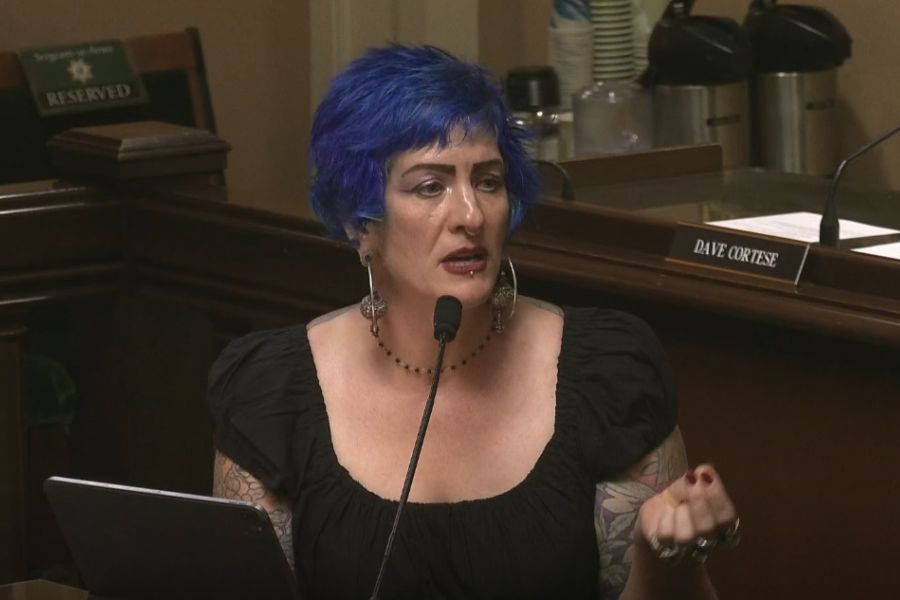Moving Beyond Compliance to Real Title IX Reform
Just over a year ago, a state audit revealed that the CSU failed to adequately respond to Title IX violations of sexual misconduct. In response, the Joint Legislative Audit Committee and the Assembly Higher Education Committee called for more effective oversight from the Chancellor’s Office.

The audit report included 16 recommendations for improvement in handling sexual harassment cases. These included providing clearer guidelines and details for assessing allegations, more timely and consistent tracking of reports, status updates for both complainants and respondents, and preventing any positive employee recommendations for those found guilty of sexual harassment.
To ensure that CSU management was providing stakeholders with a safe and inclusive environment, CFA members co-sponsored the now enacted Senate Bill 808, which requires the Chancellor’s Office to submit an annual report to the legislature detailing the actions taken to address sexual harassment reports and formal sexual harassment complaints on university campuses.
“The CSU needs to move from being simply compliance-driven to a real commitment to innovative Title IX policy and practice.”
– Anne Luna-Gordinier, CFA Sacramento President
So far, 10 of the 16 recommendations have been fully implemented, and we are glad that management has continued in their efforts and plans for ongoing improvement.
It’s important, however, to recognize that the work moving forward must be done with an anti-racism and social justice framework that emphasizes restorative justice. CFA Sacramento President Anne Luna-Gordinier reminded the chancellor that merely hiring more administrators to create a larger structure to monitor and support Title IX work is not enough.
“We have learned that adding more administrators at the top does not solve the problem,” Luna-Gordinier said during the hearing. “The CSU needs to move from being simply compliance-driven to a real commitment to innovative Title IX policy and practice. We need to work to minimize and eliminate the problem rather than merely ensuring that investigations are processed and tracked.
“The focus must be on capturing patterns of discrimination with an intersectional approach that recognizes racial, gender, sexual orientation, and disability biases.”
Assemblyperson Corey Jackson also observed that management’s failure to address sexual harassment on campuses is indicative of a larger issue of neglecting to foster an inclusive environment for stakeholders.
“It’s not just on this issue. The way Native American remains have been handled, issues regarding homeless students at the CSU, the way that many of your representatives have mischaracterized some of our bills in the past and haven’t had honest conversations… It seems to me that the worst has happened that usually happens to many systems and institutions, and that is prioritizing the system over doing what’s right.”
Luna-Gordinier points out that while the Chancellor’s Office is allowing CSU presidents to implement Title IX policies in various ways to meet their campus needs, this approach can lead to inconsistencies and a lack of clear guidance on what should be done.
“What we’re trying to envision is not just a punitive approach in terms of resolutions, but thinking about restorative justice, thinking about a non-carceral approach, thinking about ways to engage folks who have been affected by this… Survivors in consultation with developing how we do the training, and actually doing peer-based training as opposed to these ‘one-size-fits-all’ online trainings. Bringing it in and actually doing something that’s more like a workshop with survivors who can speak to the real experiences has a lot more impact than clicking through a bunch of illustrations, and I think that that could be something that could be very impactful.”
There is still much more work to be done to remove many of the barriers that negatively impact our students. CFA members will continue to advocate on behalf of survivors and make sure they are felt, seen, and heard, and we will continue to monitor and offer counsel on strategies for tackling the problem of sexual harassment on our campuses.
Join California Faculty Association
Join thousands of instructional faculty, librarians, counselors, and coaches to protect academic freedom, faculty rights, safe workplaces, higher education, student learning, and fight for racial and social justice.